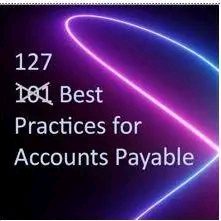What to Financially Expect When You’re Expecting

Becoming a parent is a life-changing journey filled with joy and excitement, but it also comes with significant financial responsibilities.
From prenatal care to diapers and beyond, understanding what to financially expect when you’re expecting is crucial for your peace of mind and your growing family’s well-being.
In this article, we’ll explore the key financial aspects of preparing for parenthood.
1. Budgeting for Baby Expenses
One of the first financial steps to take when expecting a child is creating a budget tailored to your new family dynamics.
Start by listing all potential expenses, including medical bills, baby gear, childcare, and any adjustments to your living arrangements.
This will give you a clearer picture of the financial resources you’ll need.
Consider reviewing your existing budget to identify areas where you can cut back or reallocate funds to accommodate your new expenses.
Additionally, setting up a dedicated savings account for baby-related costs can help you stay organized and ensure you’re financially prepared.
2. Health Insurance and Medical Costs
Healthcare expenses are a significant part of the financial equation when expecting a child.
Review your health insurance policy to understand what prenatal and maternity care it covers.
Make sure to factor in co-pays, deductibles, and any out-of-pocket expenses.
Furthermore, explore the option of opening a Health Savings Account (HSA) or Flexible Spending Account (FSA) if available through your employer.
These accounts can help you save on taxes while covering eligible medical costs related to pregnancy and childbirth.
3. Paid Parental Leave
Understanding your workplace’s parental leave policies is crucial for managing your finances during this period.
Determine how much paid or unpaid time off you’re entitled to and plan your budget accordingly.
If your employer offers paid parental leave, find out how your salary or benefits will be affected during this time.
Consider creating a backup plan for income during unpaid leave periods, such as utilizing savings or exploring alternative sources of temporary income.
4. Childcare and Education Costs
Childcare and education expenses can be significant long-term financial commitments.
Start researching local childcare options, their costs, and availability well in advance.
You may also want to explore educational savings accounts, such as 529 plans, to prepare for your child’s future educational needs.
FAQs
Is it necessary to create a separate savings account for baby expenses?
While not mandatory, having a dedicated savings account for baby-related costs can help you stay organized and ensure you’re financially prepared for the expenses that come with parenthood.
How can I save on healthcare costs during pregnancy?
Review your health insurance policy to understand coverage for prenatal and maternity care. Consider utilizing Health Savings Accounts (HSAs) or Flexible Spending Accounts (FSAs) to save on eligible medical costs.
What should I do if my employer doesn’t offer paid parental leave?
If your employer doesn’t provide paid parental leave, plan for unpaid leave by creating a budget, exploring temporary income sources, and considering the use of savings during this period.
When should I start saving for my child’s education?
It’s never too early to start saving for your child’s education. Research educational savings options like 529 plans and consider setting up an account as soon as possible to secure their educational future.
Also Read: Saving an Extra $20 Weekly



